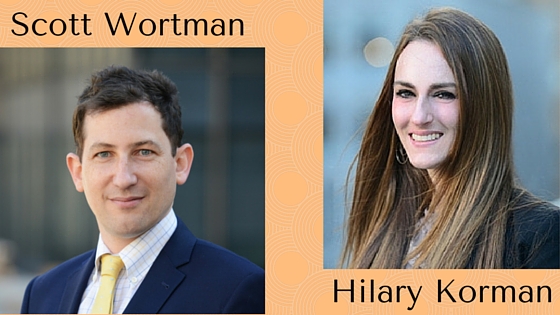This is a guest post by Scott E. Wortman and Hilary Korman of Warshaw Burstein, LLP
On Feb. 22, 2016, the U.S. Court of Appeals for the Second Circuit issued a significant decision; not only did they discourage Fair Debt Collection Practice Act (“FDCPA”) actions premised on alleged violations of state and local debt collection laws, they recognized that many FDCPA cases are ill-suited for class certification.
Background and Lower Court Decision
In Gallego v. Northland Group, Inc.,1 Plaintiff claimed that a collection letter violated the FDCPA2 because it did not provide a “call-back” name, as required by the New York City Administrative Code § 20-493.1(a)(iv). The case was settled on a class-wide basis, and the parties made a motion for class certification. The settlement included a $17,500.00 class fund,3 which would be distributed among approximately 100,000 putative class members, if the class member returned a claim form. However, for putative class members that did not opt out of the settlement, their claims related to the letter would be fully released.
The lower court denied class certification and scoffed at the “de minimis”4 nature of the potential recovery (16.5 cents per class member). The Court stated that “[s]uch an insignificant recovery is harmful to a putative plaintiff who might have prosecuted his claim individually but failed to opt-out of the class, and it is meaningless to everyone else.” The Court went on to say “[t]he prospect of mass indifference, a few profiteers, and a quick fee to clever lawyers is hardly the intended outcome for Rule 23 class actions.” Also, following Plaintiff’s request to reconsider the decision, based on the purported likelihood that only a few class members would return claim forms, the Court stated “[n]o matter whether $0.17 or $3.50, the prospect of a de minimis recovery creating mass indifference in the case makes sport of the judicial process and shows disrespect for the law.”5
Second Circuit Decision6
Not only did the Second Circuit uphold the lower court’s denial of class certification, they took it a step further and provided an unsolicited merits analysis. Importantly, the Second Circuit joined other Circuits in holding that violations of state and local debt collection statutes are not per se actionable under the FDCPA. The Court also found that the failure to include a call-back name was neither a “false representation,” “deceptive,” nor “unfair” because the letter could only be interpreted one way, and deceived no one. They also remarked that “[a]n expected low participation rate is hardly a selling point for a proposed class settlement – and the relief would still be trivial even if only 5% of class members filed a claim.” They also found that there was sufficient reason to doubt Plaintiff’s ability to fairly and adequately protect the interests of the class,7 since the settlement was designed to release absent class members’ claims in exchange for 16.5 cents, or no money at all.
Takeaways
The credit and accounts receivable management industry can take solace in knowing that an alleged violation of a state or local statute does not automatically rise to the level of a federal violation. What’s more, the Second Circuit has now explicitly encouraged the denial of class certification in a FDCPA suit where class members were to receive a trivial amount, where otherwise a class member could recover $1,000.00 in an individual action. Finally, in negotiating a class action settlement, one should be mindful that a court will examine whether class members are giving up too much (with little or nothing to show for it), where the only clear winners are plaintiff’s attorneys.8
The information and materials in this article are provided for general informational purposes only and are not intended to be legal advice. The law changes frequently and varies from jurisdiction to jurisdiction. Being general in nature, the information and materials provided may not apply to any specific factual and/or legal set of circumstances. No attorney-client relationship is formed, nor should any such relationship be implied. Nothing here is intended to substitute for the advice of an attorney, especially an attorney licensed in your jurisdiction.
______________________________
Scott E. Wortman and Hilary Korman are part of the Creditor’s Defense Litigation and Compliance Group at Warshaw Burstein, LLP.
1 Gallego v. Northland Group, Inc., No. 14-cv-07115-AKH (S.D.N.Y.)
2 Specifically, 15 U.S.C. §§ 1692e(10) and 1692f.
3 This includes a $1,000.00 payment to plaintiff.
4 In order to certify a class under Fed.R.Civ.P. § 23, among other things, it must be established that the class action is the superior method to fairly and efficiently adjudicate the controversy (see Fed.R.Civ.P. § 23(b)(3)). When class recovery is viewed as de minimis, superiority is lacking.
5 See Gallego v. Northland Group, Inc., No. 14-cv-07115-AKH, Document No. 28 (S.D.N.Y. March 19, 2015)
6 Gallego v. Northland Group, 2016 U.S. App.Lexis 3025, No. 15-1666-cv (2d Cir. February 22, 2016).
7 See Fed.R.Civ.P. § 23(a)(4).
8 Plaintiff’s attorneys were set to receive up to $35,000.00 in fees.









